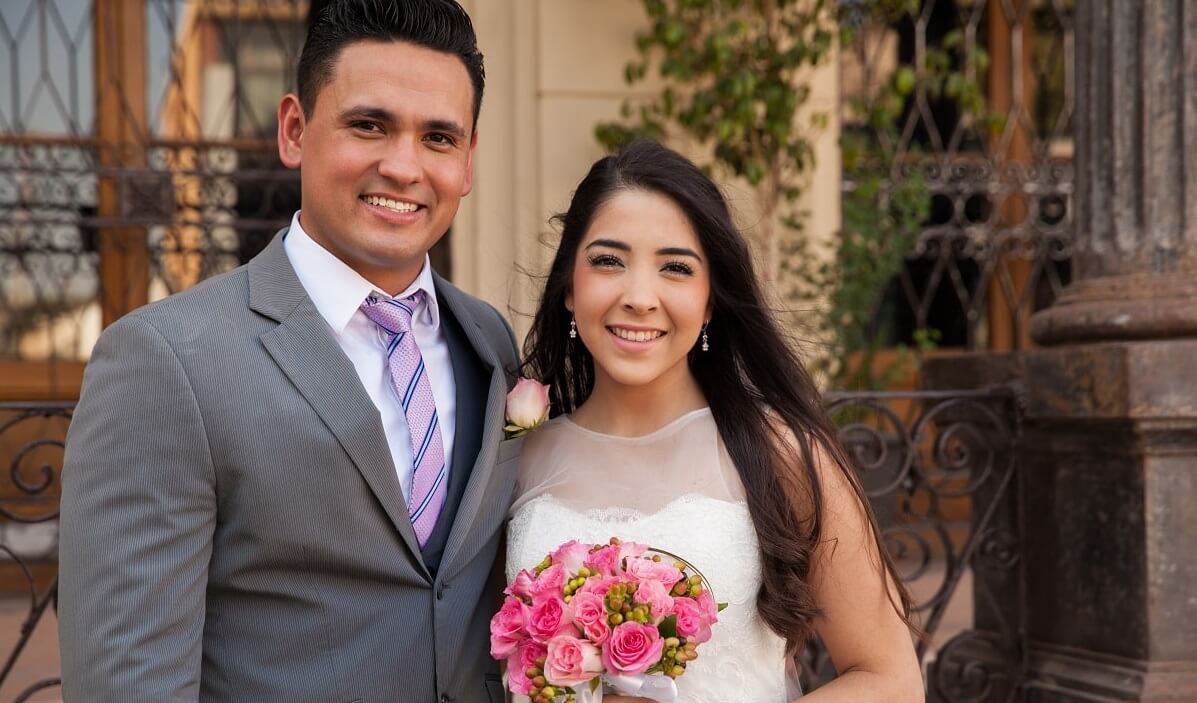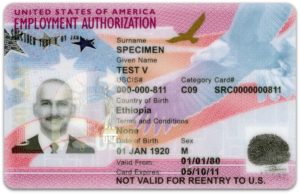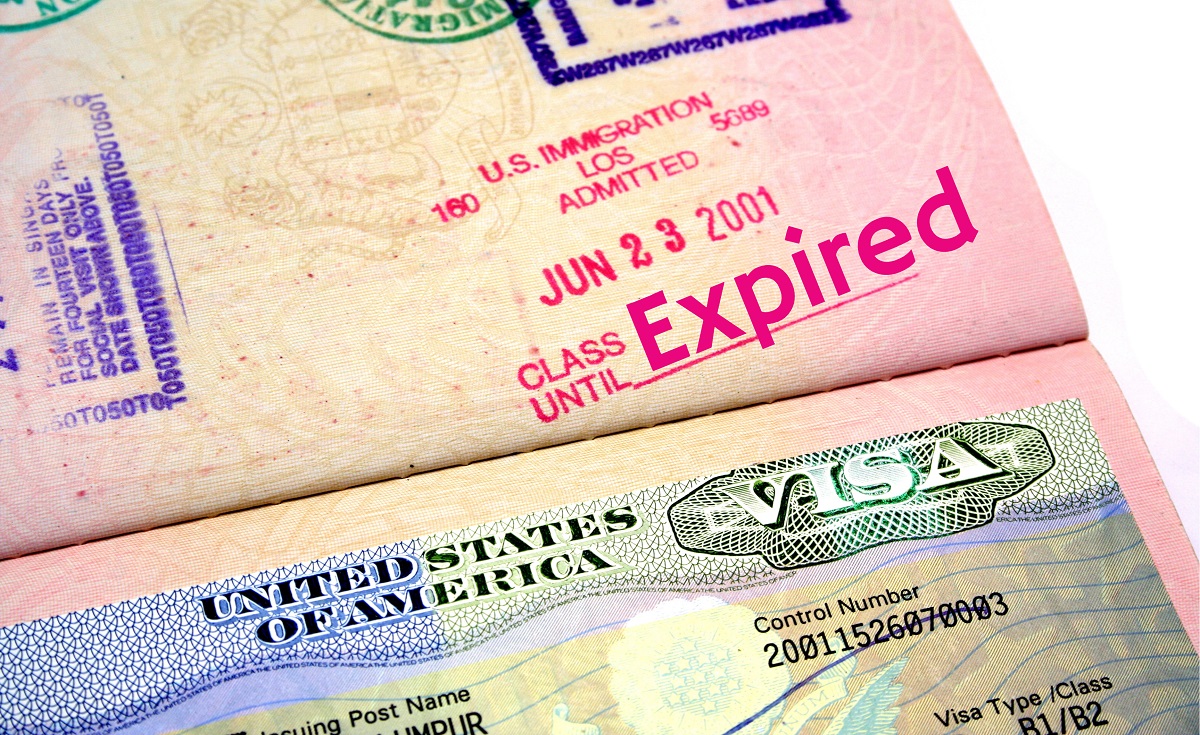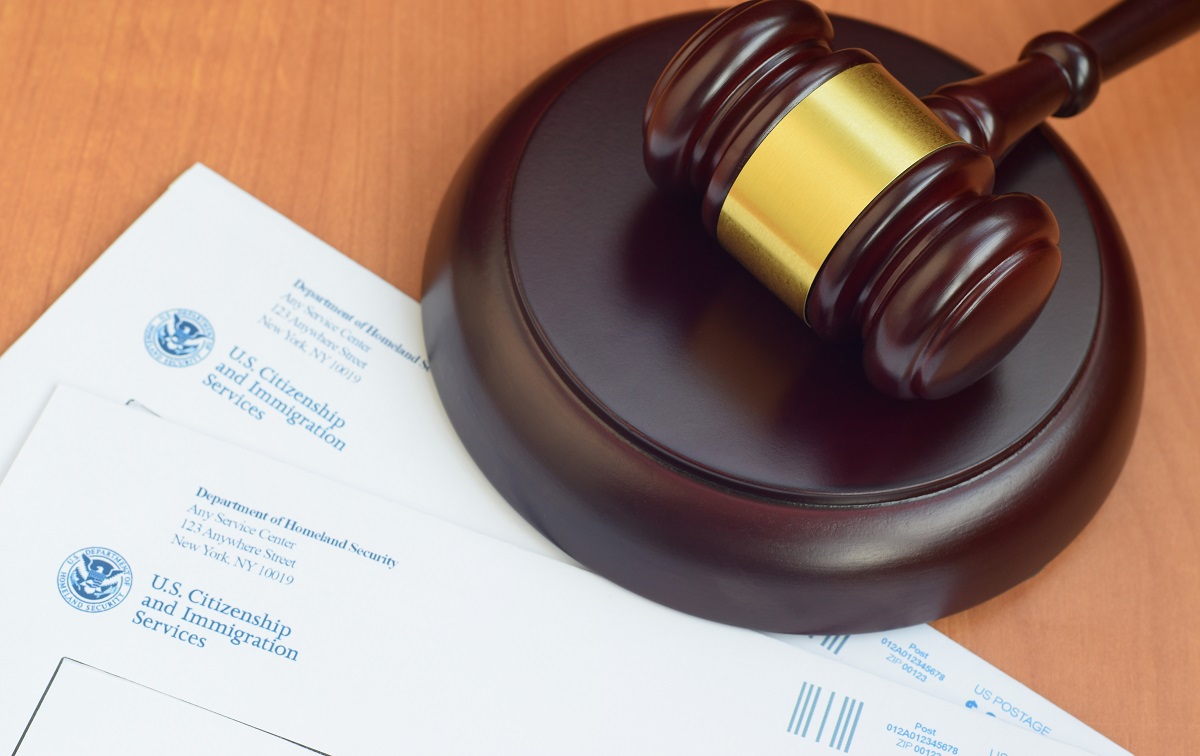
You can’t necessarily control whom you fall in love with. If that person happens to be unlawfully present in the United States, they may still have a path to marriage and a normal life in America. There are no laws against marrying an undocumented immigrant. However, there are additional obstacles to legal status for someone who has been unlawfully present in the U.S.
Marrying an undocumented immigrant does not cure the immigration problem, but there are remedies for most couples. The solutions generally depend on how the immigrant entered the country and the citizenship status of the U.S. spouse. These factors also determine how the undocumented immigrant may apply for permanent resident status (green card). Some may be able to adjust status from inside the United States while others must depart the U.S. to apply for a green card through consular processing.
Understand What It Means to be Undocumented
U.S. Citizen Marriage to an Undocumented Immigrant with Lawful Entry
Marriage to an Immigrant with an Unlawful Entry
Marriage to a DACA Recipient
Marrying an Undocumented Immigrant with a Criminal History
How CitizenPath Helps with a Marriage-based Green Card
Understand What it Means to be Undocumented
Determine if the Foreign National Entered Lawfully
A lawful entry is a requirement for applying for a green card inside the United States. In other words, the immigrant must have been admitted or paroled into the U.S. Typically, the foreign national must have entered the U.S. with valid documentation, made face-to-face contact with a U.S. immigration officer, and that officer acknowledged the individual's entry to the United States. Generally, this happens at a port of entry (airports, border crossing, etc.) when the foreign national shares a passport and visa. An unlawful entry would be the opposite. Individuals who entered the U.S. without valid documentation (even as minor children with their parents) had an unlawful entry.
How Unlawful Presence is Different
For the most part, "undocumented" is the same thing as unlawfully present. Foreign nationals who enter the country without documentation and haven't been granted an immigration status are unlawfully present. Likewise, individuals who entered with a valid visa but overstayed that visa are also unlawfully present. However, they still had a lawful entry. U.S. immigration law allows certain foreign nationals who are physically present in the United States to adjust status to permanent resident even after a visa overstay.
Bars to Reentry
On the other hand, departing the United States after certain periods of unlawful presence will generally trigger bars to reentry for:
- 3 years, if the foreign national departs the United States after having accrued more than 180 days but less than 1 year of unlawful presence during a single stay (INA section 212(a)(9)(B)(i)(I));
- 10 years, if the foreign national departs the United States after having accrued one year or more of unlawful presence during a single stay (INA section 212(a)(9)(B)(i)(II)); or
- Permanently, if the foreign national reenters or tries to reenter the United States without being admitted or paroled after having accrued more than one year of unlawful presence in the aggregate during one or more stays in the United States.
This is why marriage to an undocumented immigrant who has departed the United States can actually make things more difficult.
U.S. Citizen Marriage to an Undocumented Immigrant with Lawful Entry
The most straight forward path to legal status for an undocumented individual is generally through marriage to a U.S. citizen after a lawful entry. (If you are not a U.S. citizen or your spouse entered unlawfully, you may want to skip to next section.) The spouses of U.S. citizens are classified as immediate relatives in immigration law. Immediate relatives are exempted from certain rules that would otherwise prevent many applicants from obtaining permanent resident status (green card). Because of this, an undocumented spouse of a U.S. citizen can adjust status after overstaying a visa. As long as the foreign national did not depart the United States, the overstay can be a few days or several years.
No special waivers are necessary for the overstay, provided that the green card applicant has proof of the lawful entry.
Applying for the Green Card
The application process for the spouse of a U.S. citizen with a visa overstay if very similar to any other spouse-based adjustment of status. The typical adjustment of status package typically includes the following forms:
- I-485, Application to Register Permanent Residence or Adjust Status
- I-130, Petition for Alien Relative
- I-130A, Biographic Information (if relative is a spouse)
- I-864, Affidavit of Support
- I-765, Application for Employment Authorization (optional)
- I-131, Application for Travel Document (optional)
- I-693, Report of Medical Examination and Vaccination Record
Work Permit
Before receiving a green card, your spouse may obtain employment authorization in the form of a work permit. As an adjustment of status applicant, he or she is eligible to request work authorization. Upon approval, he or she will receive an employment authorization document (EAD) to use as a government-issued photo identification with employers.

Applicants may request the EAD by filing Form I-765, Application for Employment Authorization. When filed as a part of the adjustment of status package (or while still pending), there is no additional USCIS filing fee.
Travel Abroad
Generally, adjustment of status applicants may also travel abroad if they have obtained advance parole travel documentation before departing. However, applicants with any accumulated unlawful presence in the U.S. should take additional precautions before traveling outside the U.S. We recommend speaking to an immigration attorney to address the applicant's specific situation.
Applicants may request the advance parole by filing Form I-131, Application for Travel Document.
Marriage to an Immigrant with an Unlawful Entry
If your foreign national spouse has spent more than six months (180 days) in the U.S. after an unlawful entry, they will most likely have to travel to a U.S. embassy or consulate abroad for the green card interview. As discussed earlier, this is where the 3- or 10-year bar could become a legal obstacle for the application. If you are marrying an undocumented immigrant who entered without inspection, an unlawful presence waiver may be available.
Likewise, spouses of permanent residents who have accrued time in an unlawful presence will face hurdles if trying to adjust status. These applicants may also need to use consular processing at the risk of triggering a bar. Again, an unlawful presence waiver may be available to resolve this problem.
Certain immigrant visa applicants who are relatives of U.S. citizens or lawful permanent residents may file Form I-601A to request a provisional unlawful presence waiver of the unlawful presence grounds of inadmissibility under Immigration and Nationality Act section 212 (a)(9)(B). The request is filed and decided before departing the United States to appear at a U.S. embassy or consulate. Thus, the approved I-601A provides the applicant some reassurance that he or she will not be barred from reentering the U.S.
It should be noted that the provisional unlawful presence waiver only addresses the unlawful presence ground of inadmissibility. Intending immigrants with multiple grounds of inadmissibility may need a broader I-601 waiver request. We highly recommend working with an immigration lawyer to request any waiver.
Marriage to a DACA Recipient
The same rules hold true for an immigrant who has been granted Deferred Action for Childhood Arrivals (DACA). As long as the DACA recipient's most recent entry was a lawful entry, they may likely apply for a green card after marriage to a U.S. citizen. For DACA recipients, the lawful entry generally comes in one of two different ways. First, they may have used a valid visa to enter the United States with parents. Alternatively, DACA recipients have previously been able to travel abroad and reenter the United States with an . Even if their initial entry to the U.S. was illegal, the most recent entry with advance parole provides a lawful entry for the purposes of adjusting status.
On the other hand, a DACA recipient who most recently entered without inspection has the same problem as most other persons who want to adjust status. The lawful entry is essential. They may be a candidate for the unlawful presence waiver.
Marrying an Undocumented Immigrant with a Criminal History
The process described above definitely gets more complicated for someone marrying an undocumented immigrant with a felony or other criminal offenses. A variety of criminal offenses can be grounds for inadmissibility. Any person with past arrests or immigration violations should speak to an immigration attorney before submitting any USCIS form.
About CitizenPath
CitizenPath provides simple, affordable, step-by-step guidance through USCIS immigration applications. Individuals, attorneys and non-profits use the service on desktop or mobile device to prepare immigration forms accurately, avoiding costly delays. CitizenPath allows users to try the service for free and provides a 100% money-back guarantee that USCIS will approve the application or petition. We provide support for the DACA Application Package (Forms I-821D and I-765), Adjustment of Status Package (Form I-485, I-130 and I-130A), and several other immigration services.
Want more immigration tips and how-to information for your family?
Sign up for CitizenPath’s FREE immigration newsletter and
SAVE 10%
on our immigration services







